Solar is becoming increasingly popular in the UK, and the latest Energy Security Strategy highlighted that the UK government intends for it to increase five-fold to provide 70 gigawatts of energy by 2035.
So, which types of solar panels are the best on offer? And how do you know what to choose?
Here we’ll explain all there is to know about solar energy to make the process as easy as possible.
Best Solar Panels UK Key Takeaways:
- The “best” really depends on your individual goals and specific needs.
- In terms of efficiency, the very best available cap out at around 24%.
- In terms of the best warranty length, some brands offer a 40-year warranty.
- In this guide, we have highlighted a selection of solar panels that are best in terms of warranty, affordability and other factors and attempted to highlight a brand that meets all of these requirements.
Best Solar Panels Quick Summary:
- Best overall solar panels: SunPower Maxeon 3.
- Best warranty period: Project Solar Evolution Elite.
- Best for heat resistance: Q Cells Q.Peak DUO BLK ML-G9.
- Most affordable: LG NeON Solar Panels.
- Lightweight design: Panasonic HIT N340.
How did we choose the Best Solar Panels in the UK?
When considering the best solar panels, we considered the following factors:
- Efficiency of the solar panels.
- Warranty period of the solar panels.
- Performance warranty of the solar panels.
- Eco-friendly credentials, e.g. do they use recycled materials?
- Weight and dimensions.
- Heat resistance.
- Power generation ability.
- Aftercare & support.
Best Solar Panels in the UK in 2023:
When choosing solar panels, we analysed the factors above to come up with our list and have ranked them in descending order:
#1 SunPower Maxeon 3 (Best Solar Panels)
The Maxeon range is one of the latest solar panel ranges offered by leading solar panel brand SunPower.
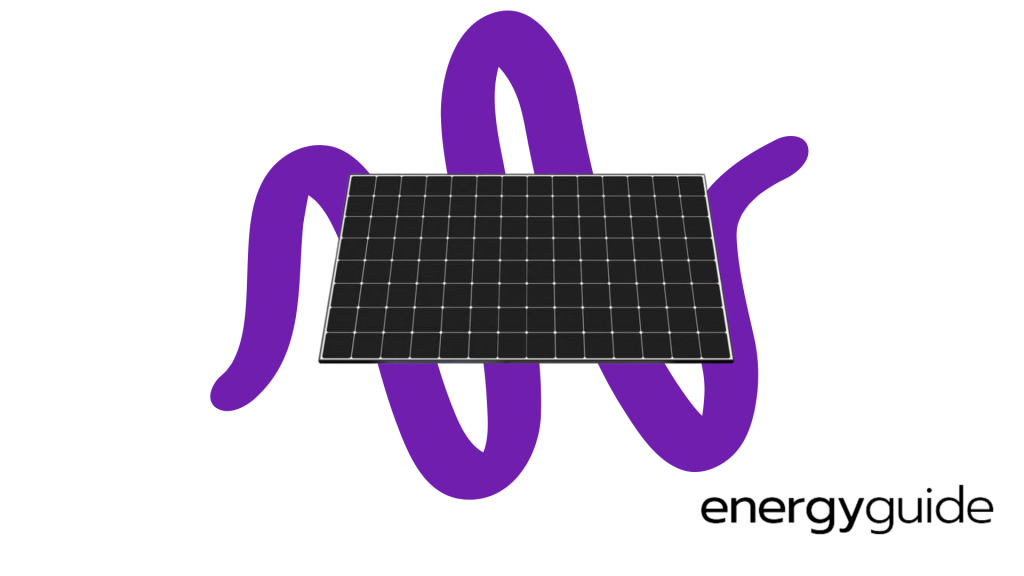
With their UK offices based in Milton Keynes, the American company Maxeon range has been placed in position one for a variety of reasons including their efficiency.
In fact, in terms of efficiency, the brand’s Maxeon solar panels are 22.6% efficient, this is in contrast to most other brands that cap out at around 20%.
Even better is the fact that SunPower claims that will function at 92% of its original level after 25 years, and at 88.25% after 40 years.
In contrast, most other solar panel manufacturers do not offer anywhere near that promise with very few offering 85% after 20 years.
#2 Project Solar Evolution Elite (Second Best Solar Panels)
Although Project Solar does not offer a price list for individual solar panels, the brand claims that the average installation will cost around £8,000.
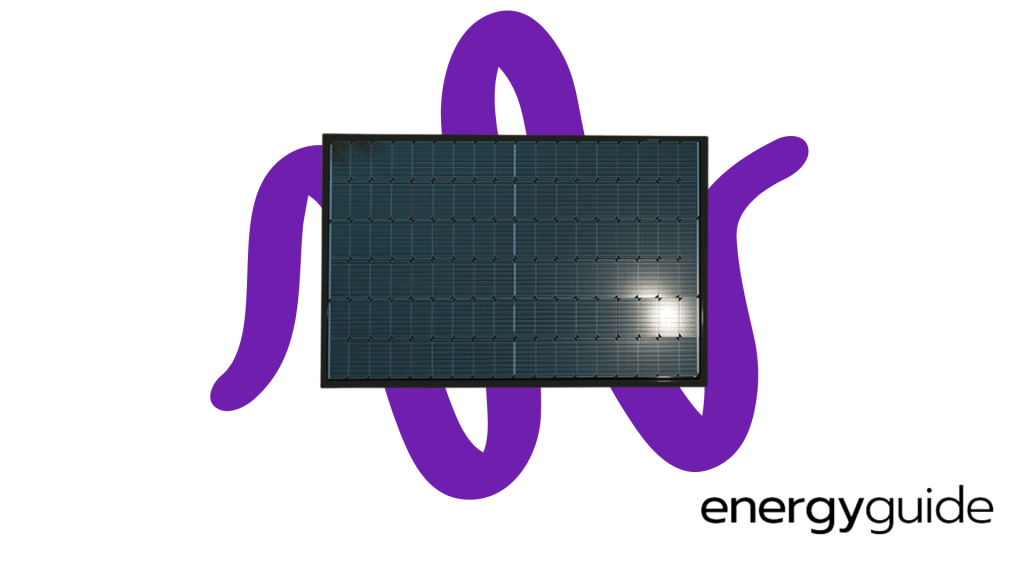
Therefore, from that, we can determine that that is around £800 per panel based on the average solar panel installation that consists of around 10 panels.
The primary reason that Project Solar made it into position 2 is due to its lifetime warranty offering. That’s right – they will offer to repair and get your panels back in working order if it’s due to a manufacturer’s fault.
In addition, the Evolution Elite 400 panels will perform at 92% of their original
levels after 12 years, 85% after 25 years, and 80% after three decades. Not quite as good as SunPower, but certainly impressive.
#3 LG NeON R (Third Best Solar Panels)
LG is a Korean technology brand that in recent years expanded into offering solar panel technology. This factor alone may provide trust in many consumers.
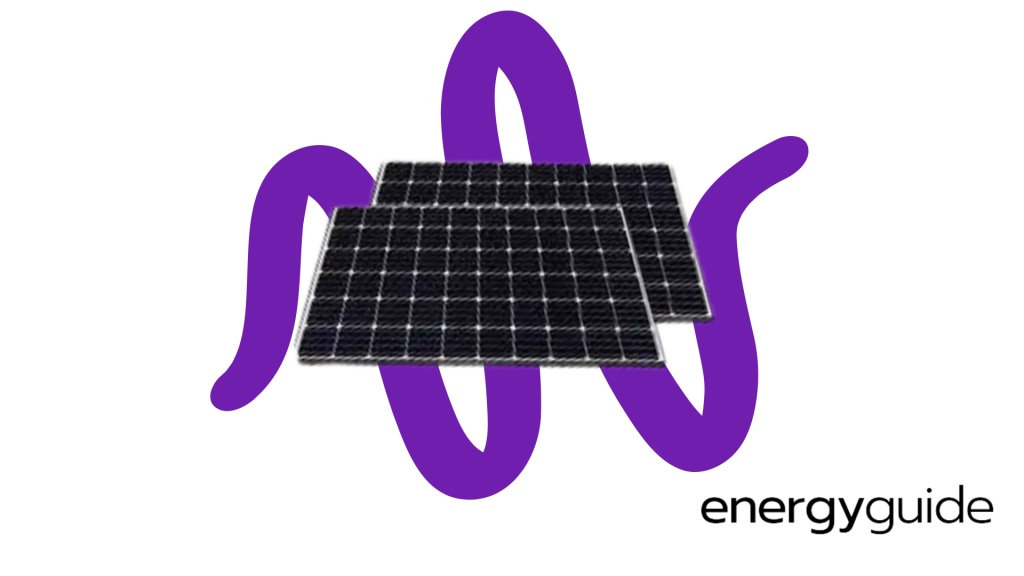
What’s even better is that the LG NeON R range of solar panels is more affordable than both SunPower and Project Solar.
Additionally, LG offers both impressive efficiency and power levels, for example, LG NeON R offer 4% more efficiency compared to several rival brands.
In terms of LG’s solar panel warranty, the brand offers a 25-year warranty and also offers 92.5% of its original power after this period, which is another major reason, they were ranked in position three.
#4 Q Cells Q.Peak DUO BLK ML-G9 (Fourth Best Solar Panels)
In recent years, there have been a lot of stories in the media reporting fires caused by solar panels, as well as losses in efficiency, so for many people, solar panels with superior heat resistance are a major consideration.
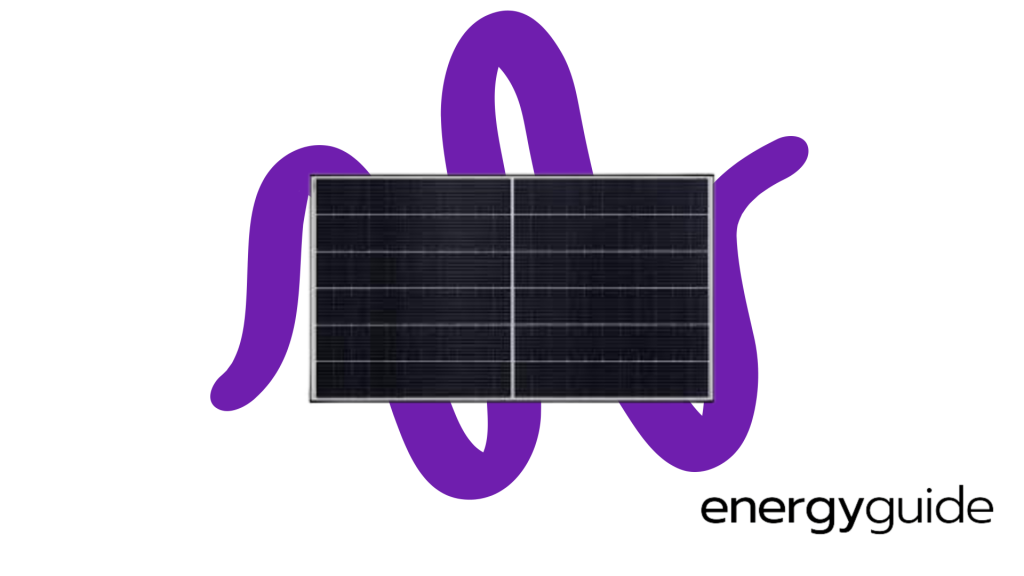
It’s for that reason we added the Q Cells Q.PeaK BLK solar panel range to the list as they can tolerate or resist an incredible amount of heat.
For instance, the Q Cell range can tolerate every degree over 25°C that the mercury passes, this panel loses just 0.25% of its efficiency. This is way above the standard for most solar panel brands.
#5 Panasonic HIT N340 (Fifth Best Solar Panels)
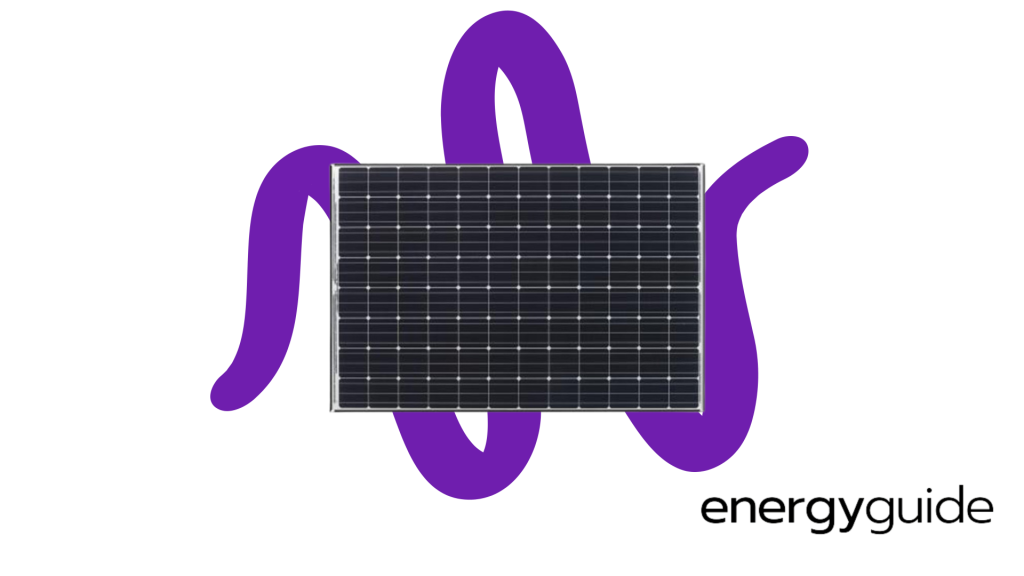
For many people, buying technology from a recognisable brand like Panasonic makes a huge difference in terms of trust and peace of mind.
The most remarkable thing about the HIT N340 solar panels by Panasonic is their weight, they come in at just 19kg, which is lightweight compared to many other solar brands out there.
Even better, the brand’s solar panels have an incredible power tolerance (how much solar power it can produce above or below its expected capacity at any particular time) of +34W/-0W.
This is an impressive rating since it means that in everyday use, it could produce an output of up to 374 watts.
Best Solar Panels UK FAQs:
What types of Solar Panels are there?
Monocrystalline Solar Panels
These panels accumulate less space than polycrystalline panels while providing roughly the same efficiency. They can, however, be more pricy.
Polycrystalline Solar Panels
The manufacturing procedure for these panels is substantially simpler.
This makes them less expensive; nevertheless, they are slightly less efficient at high temperatures, but not by much when used for domestic applications.
They do, however, take up more room because you need more of them.
Recommended reading:
- Off-Grid Solar – is it possible in the UK?
- Solar car charging guide.
- Solar inverters – what are they?
- GivEnergy battery storage system.
- Best 4kW solar battery storage system.
Thin Film Solar Cells
These work by layering multiple layers of material onto a substrate foundation and employing substrate and photovoltaic cells.
Numerous materials can be used; they are easy to mass produce and can be less expensive and more versatile.
Amorphous Silicon Solar Cells
These often contain numerous layers that are stacked to ensure optimal performance, although they are less efficient when compared to other varieties.
Biohybrid Solar Cells
These are designed to use a more natural manner of photosynthesis by blending organic and inorganic substances.
This equates to about 100 per cent efficiency, but they produce less electricity overall.
What Type of Solar Panels Should I Install?
A number of options are available for solar panels, however, in most cases, monocrystalline or polycrystalline solar panels are used.
Monocrystalline solar panels have the efficiency to convert between 15% and 20% of the sun’s energy into potential power.
This sort of solar panel is also more space-efficient than others because it generates more energy per area.
A monocrystalline solar panel generates 10W more than a polycrystalline solar panel of the same size. The cost, however, gets higher because of their high efficiency and silicon purity.
Polycrystalline solar panels generate more electricity over the year than monocrystalline panels due to their greater temperature tolerance.
Polycrystalline panels are less efficient as well as less expensive than monocrystalline panels because their silicon material is less pure.
The average efficiency rate will be between 13% and 17%.
Hence, you can choose either one depending on your budget and space.
How Much Do Solar Panels Cost?
A 3.5 kWp solar panel system, which costs £5,000-£10,000 is suitable for the average three-bedroom home with 2 to 3 residents.
You can save £160 per year on your electricity cost with this method.
A 5kW solar panel system would be necessary for larger households that house 4 or more people.
This might cost between £8,000 to £10,000.
Do I Need Solar Battery Storage?
Battery storage allows you to store solar energy for use during the evenings and at night.
If you also use a solar battery, you could save even more, in fact, without one around 50% is returned back to the National Grid.
So by using a solar battery you could save as much as an extra £230 on average or sell the energy back to the grid using the Smart Export Guarantee (SEG).
The SEG allows you to sell the energy you generate back to the grid and depending on the supplier you choose you could sell it for as much as 12p for every kilowatt hour (kWh).
To conclude on average households save around £465 a year for the average-sized home, but you could also sell excess energy via the SEG and earn an average of £120.
FAQ: Solar Panels UK
1. How much does it typically cost to install solar panels in the UK?
Answer: The average cost of installing solar panels in the UK ranges from £4,000 to £6,000 for a standard 3-4kWp system. This price can vary depending on the size of the system, the type of panels used, and the complexity of the installation.
2. Are there any government grants available for solar panel installation in the UK?
Answer: As of now, there are no direct government grants for solar panel installations for most homeowners. However, the Smart Export Guarantee (SEG) scheme allows solar panel owners to earn money by selling surplus energy back to the grid.
3. How long does it take for solar panels to pay for themselves?
Answer: The payback period for solar panels in the UK typically ranges from 9 to 15 years, depending on factors like initial installation costs, electricity usage, and how much energy you sell back to the grid.
4. Can solar panels increase the value of my home?
Answer: Yes, solar panels can increase the value of your home by making it more energy-efficient and attractive to prospective buyers who are interested in reducing their energy costs.
5. What warranties come with solar panels?
Answer: Most solar panels come with a performance warranty that guarantees 80-90% performance after 20-25 years and a product warranty from the manufacturer covering defects for 10-15 years.
6. Do solar panel prices vary by region in the UK?
Answer: Generally, solar panel costs are consistent across the UK, but installation costs can vary slightly due to local labour rates and other regional factors.
7. What are the maintenance costs for solar panels?
Answer: Solar panels require minimal maintenance. Regular cleaning and occasional checks by a professional to ensure all components are functioning correctly should suffice. This typically costs around £100-£150 per year.
8. Are there different types of solar panels, and do they affect cost?
Answer: Yes, there are mainly three types of solar panels: monocrystalline, polycrystalline, and thin-film. Each has different efficiencies and costs, with monocrystalline being the most efficient and usually the most expensive.
9. How does shading affect solar panel performance?
Answer: Shading can significantly impact the efficiency of solar panels. It’s important to install them in a location with minimal shading from trees, buildings, or other structures, especially during peak sunlight hours.
10. What is the environmental impact of installing solar panels?
Answer: Solar panels significantly reduce carbon emissions by generating renewable energy and decreasing reliance on fossil fuels. They are considered a key technology in combating climate change.